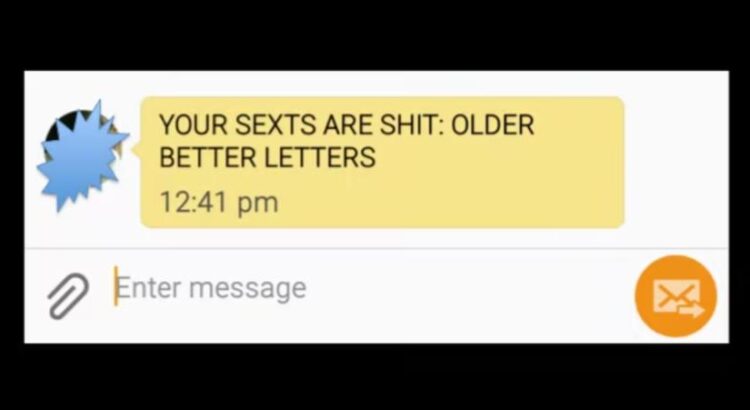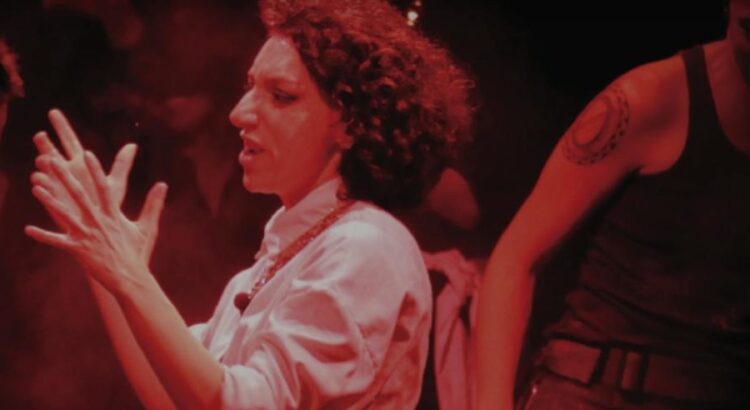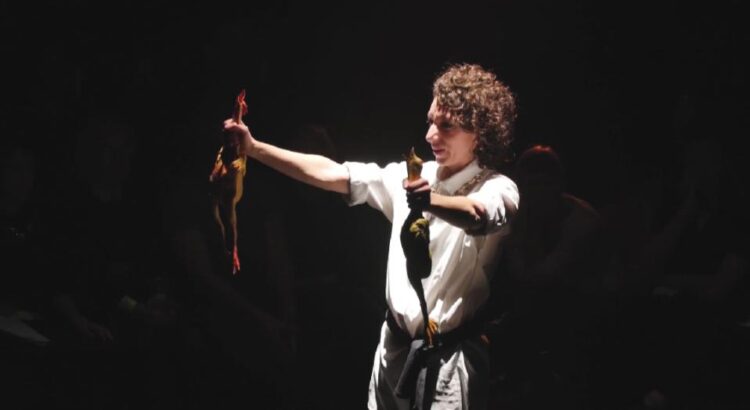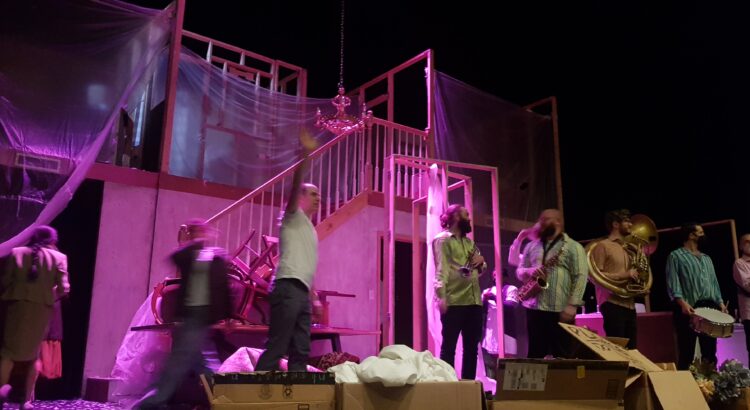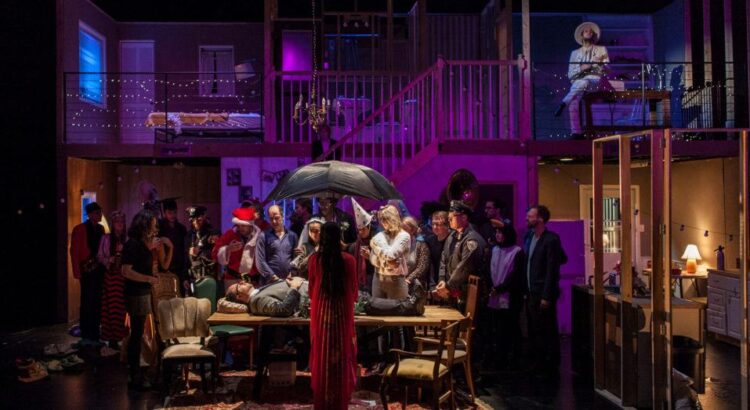**featured image from the performance trailer on UMS.org
8:00pm • Saturday, February 4, 2023 • Arthur Miller Theater
Yet again, I was mistaken in my assumption that Your Sexts Are Shit would be a simple comedy performance. Through a combination of love (and sex) letters among historical figures, screenshots of sexts (and not-sexts), and her own constructed narrative, Rachel Mars paid tribute to the voices and stories we have historically neglected to value.
Mars took a different approach to sharing each form of writing with the audience. Each style was represented visually onstage–to the right was a chest of drawers topped with a noisy, old-fashioned carousel slide projector that cast the slightly-askew letters onto a small screen. At the center, a modern projector flicked between sexts at the click of a remote. To the left, a pristine home office complete with studio lighting and Mac were set up on a slight platform. Each location lent its own interpretation to the written words Mars read, and in the Q&A, she described how these connected with the different impacts forms of communication have on their readers. For example, there is a different kind of eroticism behind sending a letter and the uncertainty of waiting for a response than in the immediacy of texting.
Also in the Q&A, Mars shared the intentionality behind her curation of the letters and texts. James Joyce’s letters to Nora Barnacle were included first, because her chance encounter with them in 2020 was what led to the project in the first place. However, she used his letters to draw attention to the fact that while the famous author’s letters have been preserved, history has not assigned the same value to his partner’s voice. This was a common theme among the letters chosen: they represented voices, or relationships, we erase. We erase women who own their sexuality, and we erase the evidence of people in power who don’t fit our expectations of womanhood or manhood. During the performance I heard one of the older audience-members next to me asking his partner, “Are these real?” I feel like it demonstrated the extent of that erasure, where even if evidence is right before our eyes we question its integrity because it clashes so intensely with our pre-conceived understanding of reality.
Something Mars said which struck me was that she takes the letters, and the texts, “quite seriously.” While we might laugh at the brazenness of Joyce’s letters, they are still the remnants of a real relationship between two real people. While I may have entered the performance with the mindset that it would be all easy laughter (which perhaps already says something about how society has taught me to think about sexuality), I left with a newfound curiosity about the other stories we neglect to take seriously.

